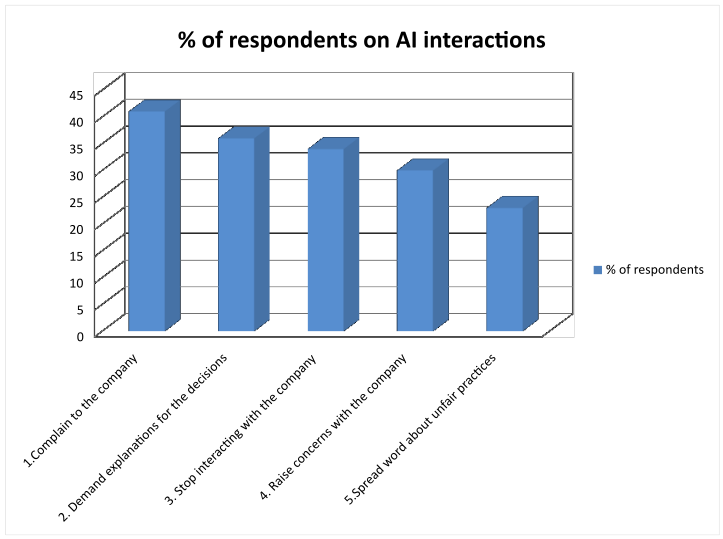A need to build companies of 2020 where values and ethical conduct matter
- The Ethics and Compliance Initiative report 2018 found that employees are more likely to be ethical if their managers and supervisor also follow ethical norms and values
- News from EEOC( Equal Employment Opportunity Commission) reveals that it secured $ 505 million for victims of discrimination in private as well as government sector in the year 2019
- Worker safety is a major concern while talking about ethical issues that do not only include physical harm. A 2019 ILO (International Labor Organization) report has also focused on the rise of “Psychological risks” and work-related issues.
Ethical Issues in Business- An Overview
Today, companies have started treating their employees fairly and consistently due to labor rights and unions. That makes excellent participation of employees in the workplace. Similarly, they might take an opportunity to show some unethical behavior. Employees must be honest, hard-working, and dedicated to achieving the goal of any organization. However, we cannot expect everyone to be the same.
Therefore, at workplaces, ethical issues are raised where there are workforce diversity and cultural differences. As per human nature, if there are no regulating or monitoring bodies in any organization, employees might seek their comfort zone and get diverted from their responsibilities.
On the other hand, they simply try to take their advantage rather than working on behalf of an organization. Therefore, ethical issues are the essential disciplinary rules of any organization to let the employees, as well as top-level executives, know the difference between freedom and discipline.
How to create a sound ethical environment in businesses?
It is essential to create a real definition of what ethical behavior is and what it is not. That encourages ethical behavior in the workplace. Mergers, transfers, and new hires create a challenge to build the expected ethical standards at the workplace. Sometimes, these expected codes of conduct may be different from that of previous codes and conducts.
Organizations should take some time to think about how the company values are communicated to every employee. Businesses hire employees, hoping they will never break ethical codes and conduct. However, there is always someone in an organization tempted to push the limits of ethical behavior. The chances of doing so will diminish only when there is a system of check-and-balance.
An employee must be punished as per the rules of an organization if he/she breaks the trust of a business leader even after being informed of the ethical codes and conduct. Similarly, organizations should never forget to show appreciation for those who exemplify the ethical values that an organization strives to live in.
Recognition of those individuals pushes forward large groups of employees to be committed to ethical behavior. If the management team displays the model behavior, the expectation of the rest of the members automatically understands.
Therefore, it is often said that ethical behaviors are not only for lower-level employees but also even top-level executives. That is because such behaviors are easily imitated and learned by each other. If positivity prevails, the outcome is always high, unlike negativity that disturbs the smooth functioning of any organization.
Here are some of the ethical issues in businesses and how they have impacted them:
- Accounting: Unethical accounting practices are one of the major problems while talking about publicly traded companies. The famous example is the 2001 scandal that destroyed American energy company Enron. This company inaccurately reported its financial statements and the auditor signed off on the comments despite being incorrect. The truth emerged in such a way that the company went out of business. According to fluoridates, the firm’s closure resulted in 85,000 job losses. Therefore, it is said that the public still distrusts corporate financial accountability.
- Social Media: The widespread use of social media has made it an essential factor in the working pattern of an employee. Employees quickly have access to a lot of information on companies. Sometimes this information might be confidential and should be limited only within the walls of the company. So, employees shouldn’t post every information about the company on social media, which can be viewed by lots of public. A single Facebook post could go reversely, and instead, do some negative things to reduce businesses. Therefore, companies should create social media policies to inform employees on what are the online activities that they can do and what they are prohibited from doing.
- Harassment and discrimination: Almost all countries encounter racial discrimination, sexual harassment, and wage inequality daily, which is very costly issues. The Equal Employment Opportunity Commission (EEOC) states that there are several types of discrimination, which include age, disability, equal pay, harassment, and many more. FRD (Functional Requirement Documents) is found in every industry and at every level within the organization. FRD includes many types of family responsibilities and caregiving, including pregnancy and eldercare. For example, A father should not be fired if he wants to stay home to care for his pregnant wife or sick child. A pregnant employee should always be allowed to take a break as per the doctor’s orders. The fulfillment of such employee requirements enables them to act ethically.
- Health and Safety: The International Labor Organization (ILO) states that 7,397 people die every day due to occupational accidents or work-related diseases. As a result, there are 2.7 million deaths every year, which boil down to the need for health care and safety step to be taken by the company on behalf of the employee. Some of the most frequently cited violations of 2018 include:
- Risky sides and edges and leading edges
- Classification of harmful chemicals
- Respiratory protection, e.g., emergency procedures and respiratory/filter equipment standards
- Control of harmful energy such as oil and gas
- Safety requirements for fire trucks
- Standards for how much weight a ladder can carry on
- Lack of placement of conductors or equipment in moist or sodden locations
- Technology/Privacy: Technological security capability has developed a lot. With this, employers can now monitor a lot on their employees’ activity on electronic devices. Electronic surveillance is supposed to ensure the efficiency and productivity of employees. However, it might cross the line and become a spy. Companies can legally monitor the company email of every employee and view the internet browser history. Also, 66% of companies monitor internet connections. According to the 2019 data from American Management Association, 45% of employers track content, keystrokes, and time spent on the keyboard, which makes it easier for employers to know the behavior of their employees. Therefore, employees should review the privacy policy to see how they are being monitored. It could also be an indicator to record their job performance.
What are the challenges faced while managing business ethical issues?
- Business questions on how to manage ethical issues arise in every step in a company. These principals must be very clear from the beginning to all the employees as well as top-level executives so that there is solid formation. However, businesses face particular challenges while managing these issues. Some of them include:
- All of the shareholders must stick on to the same business values, principles, and ethics. If they have conflicting issues, there will be a problem with creating funding or even starting any business.
- The recruitment and adoption process requires to be managed carefully by a human resource manager, which is a challenging task. Review of application resumes, work history, and interviewing candidates could be helpful to determine whether the candidate is suitable or not.
- Top-level executives or CEO are responsible to the board of directors. If they are engaged in unethical business practices, the business might lose trust and confidence in their employees, clients, and other members of the business community.
- A company must follow certain business standards and values through an appropriate check and balance system. This process is also not more straightforward. For example, the Chief financial officer who is responsible for overseeing the company’s revenue, assets, and liabilities should not be the financial auditor of the company.
AI interactions of 2019:
Consumers respond to the company usually by complaining to an instance of AI interaction resulting in ethical issues. The new report on Ethics on AI consumer survey reveals the following facts: Consumers are likely to do the following things:
| Activities | Customer involvement (%) |
| 1.Complain to the company | 41 |
| 2. Demand explanations for the decisions | 36 |
| 3. Stop interacting with the company | 34 |
| 4. Raise concerns with the company | 30 |
| 5.Spread word about unfair practices | 23 |
Source: Statista

In the above diagram, the higher number of consumers will complain to the company due to AI interaction resulting in ethical issues. However, only 23% of respondents will spread the word about unfair practices. There are also high numbers of customer involvement on-demand explanations for the decisions. Moreover, almost 34% of the respondents will stop interacting with the company. Therefore, it is essential to use AI to increase customer satisfaction rather than higher business transactions in recent years. Businesses need to understand that there must be higher involvement of the broader community to gain a better public image.







